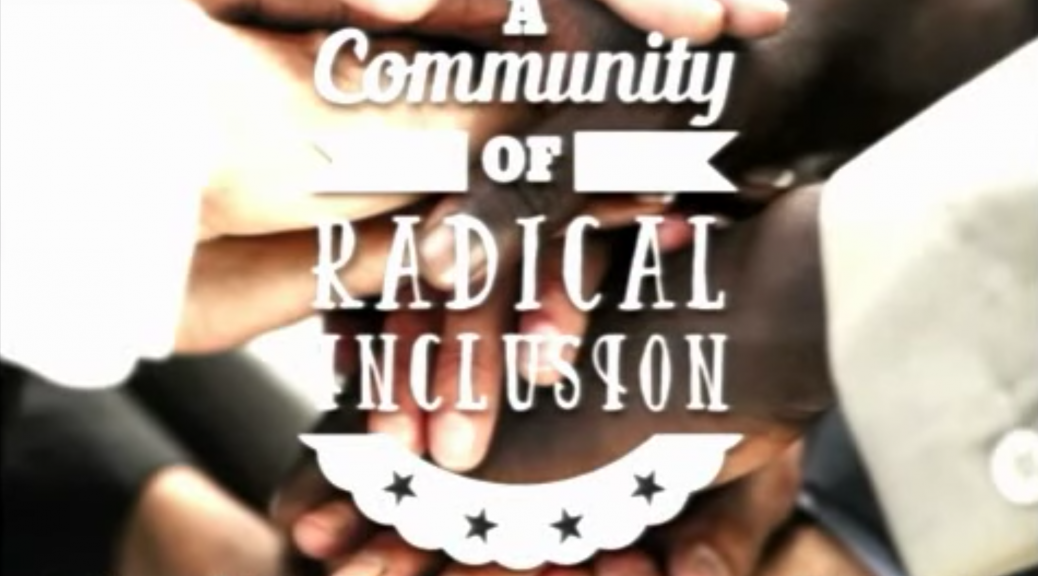Sometimes I really do despair of evangelical Christians. I claim to be one, on the basis that I believe the Bible when it teaches us about God and how He is reconciling the world to Himself through Jesus, and that we as humans need to respond to that fact. As such, I do understand that there is an imperative to share what I believe with the world. I try to do this humbly, acknowledging that truth exists throughout the world and that I do not know it all. But I also do it boldly, believing that God is knowable, personal and involved in the world, and has revealed Himself to us. I believe this is good news for everyone.
But I do sometimes cringe at those who also call themselves evangelicals and take a very different approach to telling others of the “Good News”. For many, more fundamentalist evangelicals, the only version of the good news they ever tell is that “if you trust in Jesus you won’t go to hell when you die”. This might be true, but it is nowhere near the whole truth.
Last Friday night (23 December), my 12 year old daughter excitedly invited two of her unchurched school friends to join her at a special pre-Christmas youth group evening event, with a group of about 30 other young teenagers. They were expecting an evening of fun activities and a brief Christmas themed talk to wrap things up – a fairly standard evening at the youth group. What they got instead was a long “Gospel” message from one of the church’s pastors that went something like this:
You might be a young teenager, but you still need to think about death. When I was at high school, two of my friends died: a motor cycle accident and falling off a cliff. It could happen to you. If you die without knowing Jesus you’ll go to hell. So, make sure you take this seriously and accept Jesus as your personal Lord and Saviour so that if you die you’ll go to heaven. You’re never too young to think about this.
Although I might argue with the theology of this, let’s leave that aside for now. This is not an appropriate message 36 hours before Christmas. This is not the message the angels brought to the world. It’s not what Mary thought of as she gave birth to the Saviour. How can this be “good news”? The good news was good news for everyone. It was news that a King had been born. Yes, this king would die – and rise again. Yes, this king would be a Saviour. But the good news was not that “you can avoid eternal conscious torment when you die.” The message had to do with the king and his kingdom.
Surely a more appropriate Christmas message is that God, the Creator and Sustainer of this universe and our world, is so committed to restoring His Creation to its original glory that He was prepared to humble Himself and come into His Creation to be born as a humble child into a humble family in a nation that had been humbled by history. He came to show us that God’s Kingdom is breaking into the kingdoms of this world, and that what is wrong will be made right; what is broken will be fixed; what is shattered will be restored. Jesus did not come to solve your personal sin problem: He came, as promised, to be the culmination of God’s story unfolding across time, and to reconcile the world to God through His life, death and resurrection.
Our response is not to accept His message because we fear the consequences of what might happen if we don’t. The correct response to the good news of Christmas is to realise that the One who created the world has also supplied us with a model of how life is supposed to be lived in the world He created. That model comes in multiple forms: there is the model of a family, of a nation, of a temple, of leaders and rulers, and the ultimate model of the God-man, Jesus. Our task is to learn what it means to live a life worthy of the calling we have received in Christ, and to do our part in “making earth as it is in heaven” as we await the final transformation of this world into the paradise God-connected place it was always meant to be.
There may be place in this story for a bit of fear and dread. But that time is not a few hours before Christmas. And I’d suggest that this approach to evangelism, especially of young teenagers, is precisely why so many of them abandon what faith they might have when they leave school. It is not a good foundation on which to build a life of discipleship.
To put it more plainly: it’s wrong!
Please don’t preach this at your church. Please.
Christmas reminds us very clearly and very precisely that the coming of a Saviour to the world was – and is – first and foremost: good news! It would be a very strange definition of “good news” if it is nothing more than escape from hell after you’re dead.






